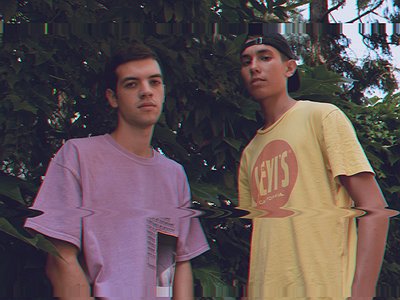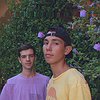Part 2
Could you describe your creative process on the basis of a piece or album that's particularly dear to you, please? Where did the ideas come from, how were they transformed in your mind, what did you start with and how do you refine these beginnings into the finished work of art?
Our brand-new EP is called Yama, which means “mountain” in Japanese. It’s a project we spent many hours working on, but we started from a simple concept, how we feel when we are surrounded by nature, isolated from the rest of the world. We then adapted our sound to the atmosphere we had in mind. One particular track, called “Furo” was initially the smallest project on the various demos that we had, but we always thought that it had a special feeling. We worked a lot on the groove and we added layers of synths and we didn’t even realize that it was becoming the biggest file in the EP and the song that we loved the most.
There are many descriptions of the ideal state of mind for being creative. What is it like for you? What supports this ideal state of mind and what are distractions? Are there strategies to enter into this state more easily?
Our “ideal” and creative state of mind comes directly from our friendship. It’s a genuine feeling that accompanies all our sessions and get us inspired to work even more. Certainly, there are distractions, but we see them as inspiration. When we are together things build very naturally, as a continuous flow.
How is playing live and writing music in the studio connected? What do you achieve and draw from each experience personally? How do you see the relationship between improvisation and composition in this regard?
As we said earlier, jamming and playing instruments directly from our midi keyboard is fundamental for our workflow, improvisation is one of the most exciting moments in the creative process because you never know what is going to happen and this can lead to the decision to follow different paths for the realisation of a song. The composition process instead is what happens inside the DAW and it’s the direct consequence of that previous state, where we organise things and build songs layer upon layer.
How do you see the relationship between the 'sound' aspects of music and the 'composition' aspects? How do you work with sound and timbre to meet certain production ideas and in which way can certain sounds already take on compositional qualities?
In our head, there is already the idea of a determined sound that could fit in a certain part of the song, we just have to create it! However, during our sound design sessions, we often let our inspiration carry us away and usually something cool happens. You could accidentally turn up that particular knob too much, finding by chance the perfect sound you need. We try to use both digital and organic sounds since, for us, they both have different purposes that fit well in our songs.
Our sense of hearing shares intriguing connections to other senses. From your experience, what are some of the most inspiring overlaps between different senses - and what do they tell us about the way our senses work? What happens to sound at its outermost borders?
We think that there’s much more than just hearing, for example the perception of the vibrations when the bass kicks in or the images that a particular song or sound evokes in your mind. In our perspective, when we produce (or when we played the violin), tactile feedback from the instruments has an important role because there is a connection between what you’re jamming and the response of the machine, not just in terms of sound. The “humanisation” of the notes when you play them, make the composition even better.
Art can be a purpose in its own right, but it can also directly feed back into everyday life, take on a social and political role and lead to more engagement. Can you describe your approach to art and being an artist?
We use our songs to express ourselves and to convey a sensation that we have inside us, but this could be perceived differently from person to person, because anyone expresses himself or herself reflecting inner emotions on that piece of art. Art is like a pen, it is a medium to express the feelings of our soul.
It is remarkable, in a way, that we have arrived in the 21st century with the basic concept of music still intact. Do you have a vision of music, an idea of what music could be beyond its current form?
Electronic music will prevail, but as every new genre appears, it feels like an “alien” to our current mind-set. There are already plenty of subgenres of electronic music, but we think that we will see even more on the market. We will see new techniques that will come with the new technologies that we cannot even imagine.






